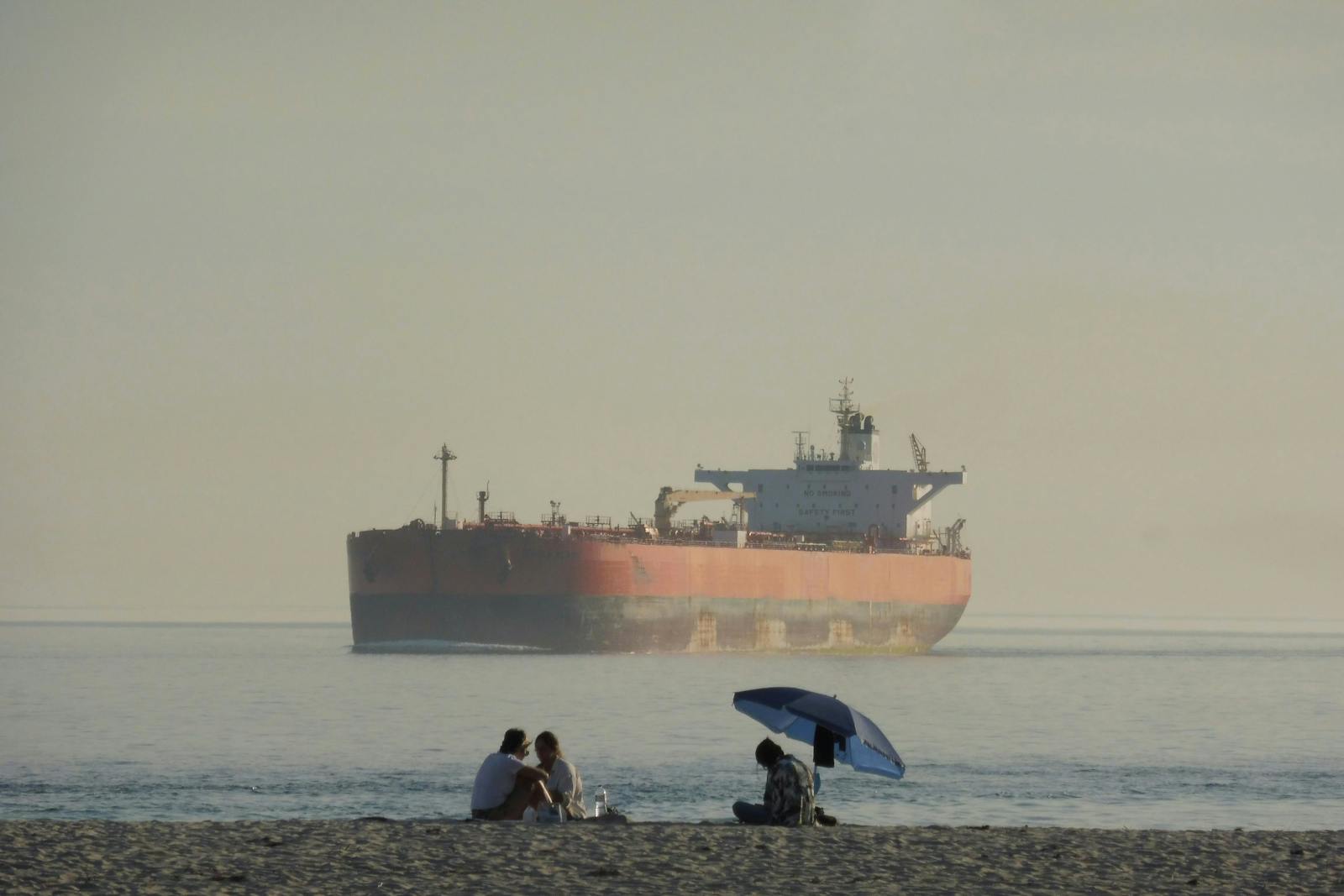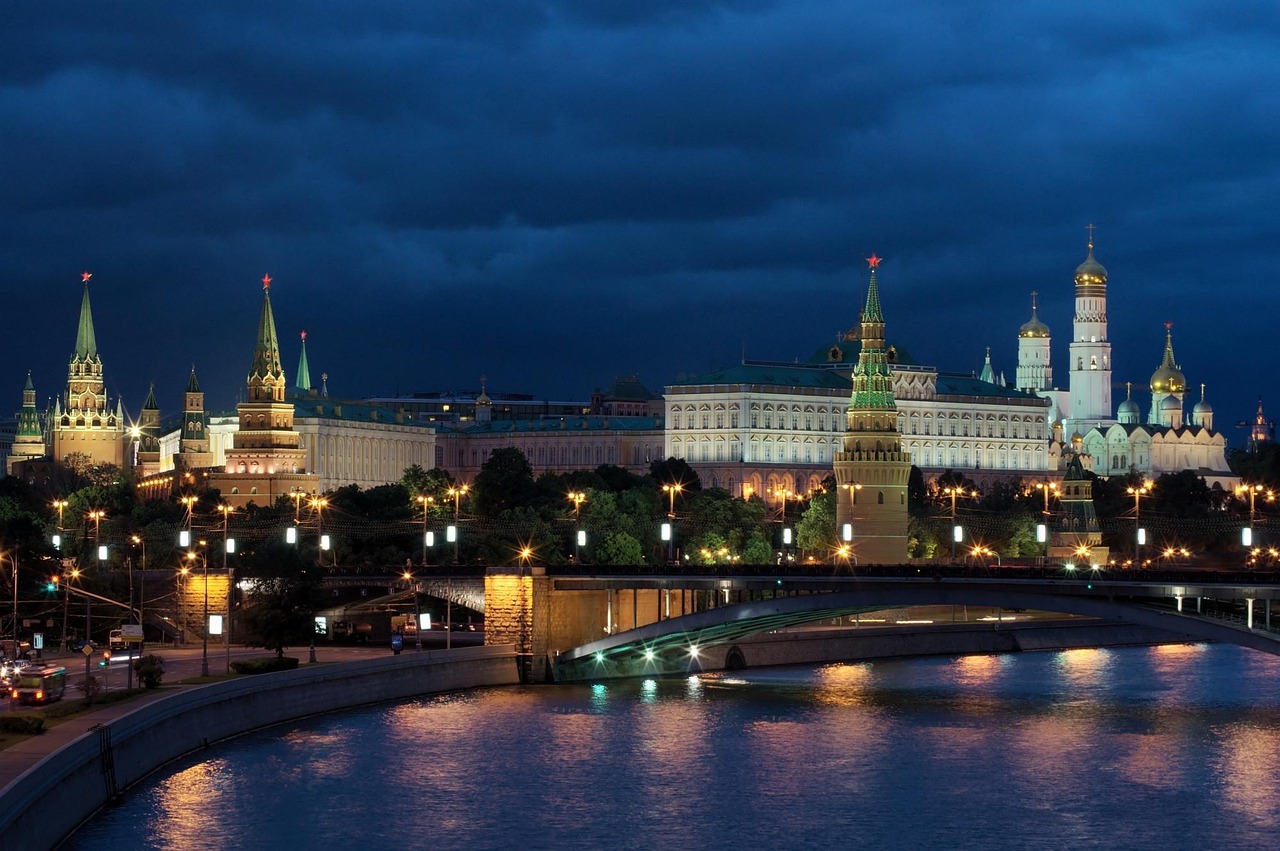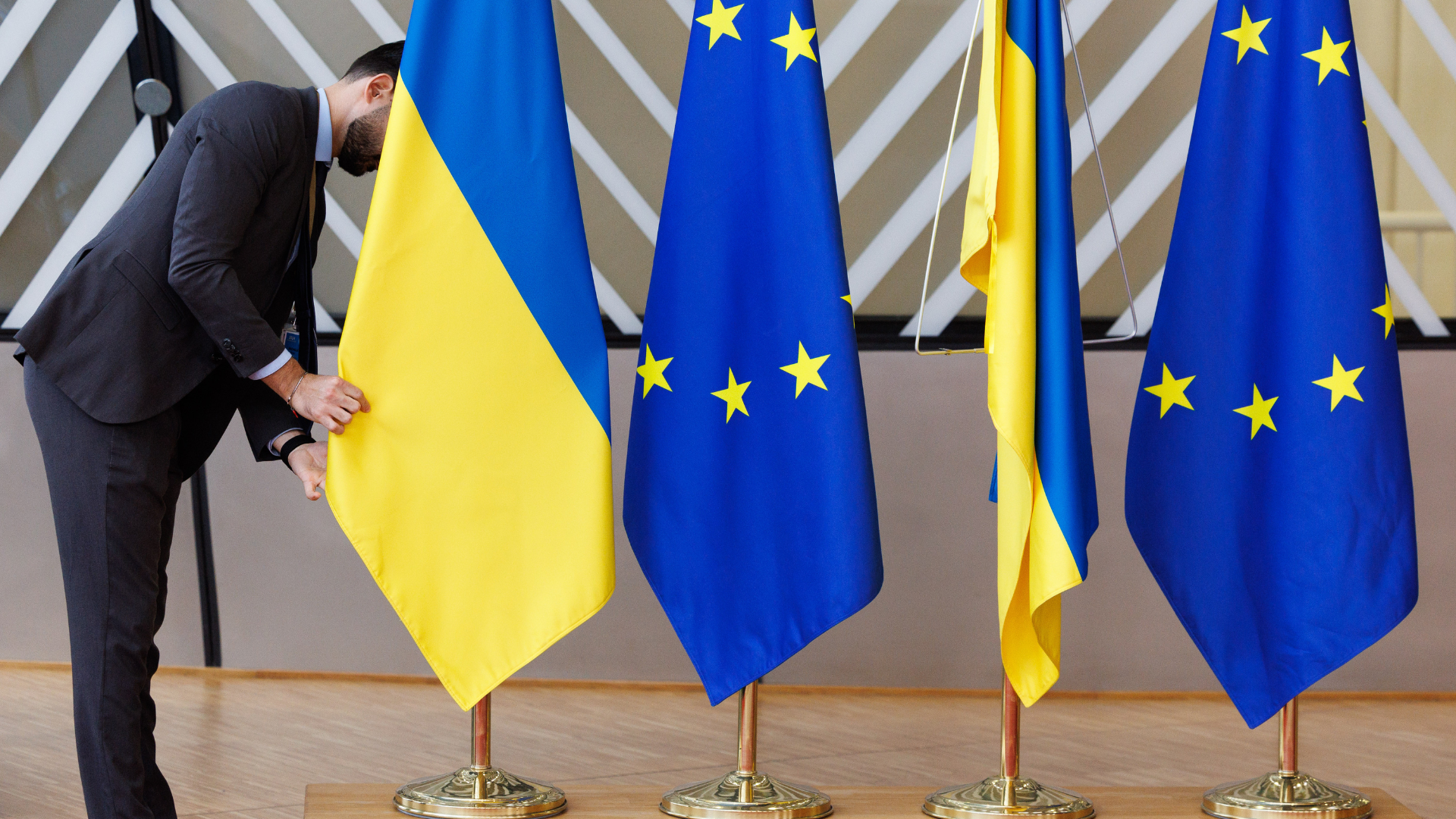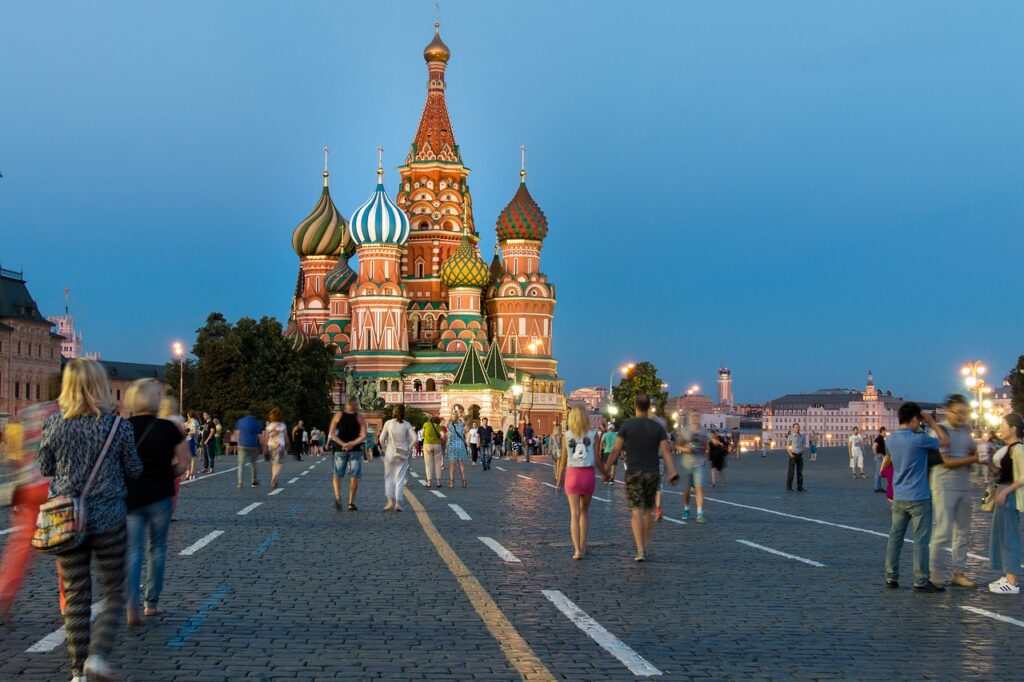As Russia’s full-scale invasion of Ukraine drags on into its third year, experts in Kyiv warn that loopholes and evasion tactics are allowing Moscow to keep vital cash flowing into its economy, despite international sanctions.
Since February 2022, Western countries led by the EU and the US have implemented a sweeping series of sanctions designed to isolate the Russian economy. The EU has implemented 16 rounds of sanctions on Russian companies, oligarchs, businessmen and key resources in a bid to starve the regime of vital income needed to pay for its wartime arsenal.
Currently 70% of assets in the Russian banking system are under sanctions, €300 billion in assets of the Russian Central Bank blocked, and €20 billion of assets from more than 1,500 individuals frozen under the EU sanctions.
A strict G7 embargo means that Russian oil has lost several major global markets, and both the US and EU have imposed a ban on investments into Russia’s energy sector, a key source of funds for the Russian armed forces.
As a result of its unprovoked aggression against Ukraine, the Russian economy now contends with record high inflation, which peaked over 10% in March 2025, forcing interest rates to above 21%, as well as reduced economic growth and growing economic dependence on its partner, China.
While these indicators seem to paint an encouraging picture of the effectiveness of Western sanctions, Kyiv-based sanctions experts argue that, despite these significant achievements, enforcement remains patchy, and new ways to evade sanctions continue to emerge.
Sanctions evasion
Yuliia Pavytska, who manages the sanctions programme at Kyiv School of Economics Institute, told The Brussels Times that despite sanctions, Russia remains highly adaptable in maintaining essential trade and financial flows.
"Unfortunately, we are still losing this fight with circumvention," said Pavytska. She explained that Russia consistently identifies new loopholes, particularly through third-country intermediaries, cryptocurrency transactions, and complex maritime trade schemes.

Credit: Pexels
Another major avenue for sanctions evasion identified by experts involves the financial sector. Despite heavy banking restrictions, Russia has found ways to conduct international transactions, especially via countries that have not fully adopted the sanctions regime. Financial flows pass through unsanctioned entities, such as Russia’s nuclear energy company Rosatom, which still operates several defence and trade companies under its corporate umbrella.
While still being blocked from SWIFT transactions, and forced to pay large sums to purchase foreign currency for international trade on the global markets, the Russian government has found new workarounds to bypass the impact of sanctions.
Olena Lapenko, general manager for security and resilience at Ukrainian energy think tank DiXi Group, explained told The Brussels Times that Russian banks have increasingly shifted to transactions denominated in Chinese yuan, significantly reducing the impact of financial sanctions.
"Russian banks have switched extensively to using yuan for international trade," Lapenko said, adding that transactions often involve banks in third countries like Kazakhstan, Turkey, and the UAE as intermediaries. While diplomatic pressure has somewhat reduced these transactions, Lapenko stressed that Russia remains highly adaptable and continuously seeks new pathways.
Trade statistics reflect Russia’s new routes for acquiring vital European components and foreign technology. In 2022, trade in goods between Russia and former Soviet republics, especially in central Asia, exploded.

Credit: EvgeniT/Pixabay
Exports from Kyrgyzstan to Russia went from around €250 million in 2021 to around €960 million in 2022. Trade between EU member states and the central Asian also exploded, with Poland exporting 18 times more goods since Russia’s invasion to the former Soviet republic, hinting at continued Russian efforts to bypass sanctions.
As evidenced by Russia’s relentless barrage of missiles targeting Ukrainian residential areas, Russia is still finding means to acquire crucial technology, such as microchips, to use in its arsenal. Trade using cryptocurrencies, Lapenko warned, is one of the methods now used by Russian firms to acquire these parts.
Perhaps most critically, sanctions experts highlight ongoing challenges in enforcing oil price caps. Despite a $60 per barrel cap set by the G7, Russia regularly circumvents this through complex shipping schemes. Russia’s shadow fleet of uninsured tankers regularly cut their transponders and run sanctioned oil through third parties, helping to ensure Russia’s valuable energy profits.
"Oil gets resold multiple times during voyages, meaning the actual sale price ends up significantly higher than the cap," explained Pavytska. "Compliance with the price cap has almost fully eroded… we hardly see any trades now genuinely under $60."
Cat-and-mouse game
According to Pavytska, Europe’s approach to growing Russian sanctions evasion, namely the introduction of sanctions in ‘packages’, is facilitating this years-long game of cat-and-mouse between Moscow and Brussels. Sanctions are introduced, Russia shops around for a means to bypass them, and Europe must introduce a new package of measures to counteract this evasion.
"We believe the EU needs to move away from large packages every few months," said Pavytska, "and instead regularly target smaller networks, vessels, and companies involved in sanctions evasion," she said.
Despite this, this dynamic is still costly for the Kremlin, which is forced each time to adapt its sanctions avoidance methods, often through increasingly costly means. “Every time when third-country entities who are involved in supply chains are targeted, this means to Russia that they need to lose time and money to establish new schemes and to establish new companies who will be doing these purchases for them,” she explained.

Ukrainian flag being placed next to EU flags. Credit: Belga
While both exports praised the EU, the US and their partners’ commitment to sanctions enforcement, which they believe have placed significant pressure on the Kremlin, the sword of Damocles hangs above the current international sanctions regime against Russia.
Newly elected US President Donald Trump has already hinted, as part of his administration’s negotiations with the Russian regime, at a partial relaxation to some US sanctions on Russia. The White House has made a pledge to “help restore Russia’s access to the world market for agricultural and fertiliser exports”, a promise that the Ukrainian experts view with suspicion.
“Neither Russian agriculture nor fertilisers are directly sanctioned,” Pavytska reminded. “Russia raises these sectors in negotiations to create a precedent for lifting sanctions elsewhere… Their whole idea is just to put their foot in the door, hiding behind food security issues.”
Related News
- Russia bans Japanese NGO campaigning for return of disputed islands
- 'Coalition of the willing': EU wants to keep up pressure on Russia
- Don't give in to external pressure on EU bid, Ukrainian MP tells Brussels
While she acknowledged that a wide-spread de-sanctioning of Russian companies and individuals would be problematic for Europe and Ukraine, the current level of American proposals, especially concerning Russia’s agricultural bank, Rosselkhozbank, would largely be insignificant.
“If the US. de-sanctions only this bank, this means nothing, because even if US banks can now do transactions with it, how would they even do this? They would need to join Russia’s SPFS banking system. The Russian bank is still disconnected from SWIFT,” she clarified.
Ultimately, the view from Kyiv is that the sanctions regime, as well as its enforcement, must be maintained to keep effective leverage on Russia. During ongoing negotiations with the US, Russia has frequently hinted at a desire for sanctions to be loosened, a confirmation they believe, that they are having their intended effect.
The top priority now for Ukraine, is to ensure that it is not left behind by the negotiations, which risk forcing the nation into a precarious or problematic position. “The crucial moment now is to be strong and clear that lifting sanctions cannot be a precondition for negotiations," the KSE expert concluded.

